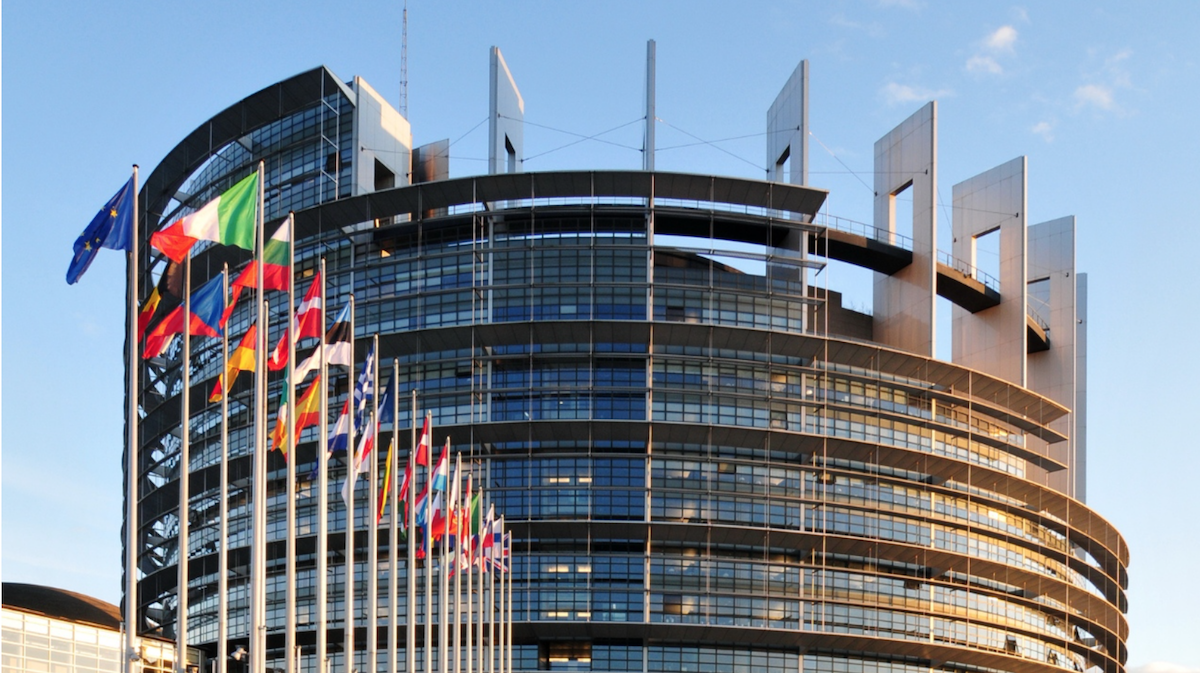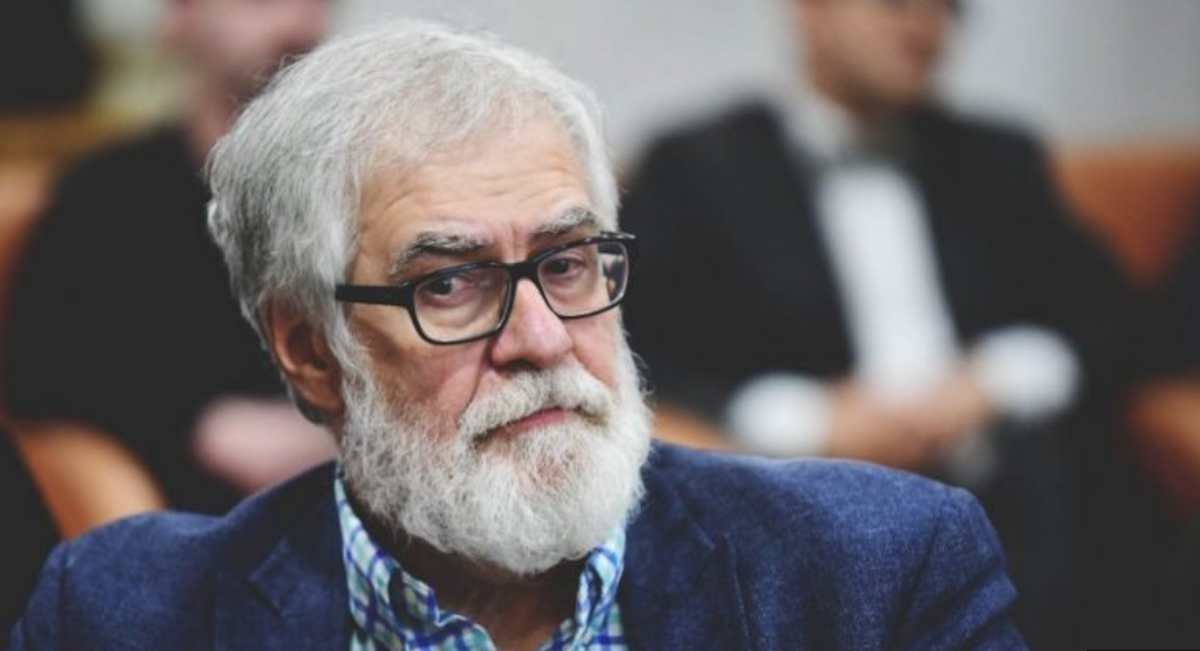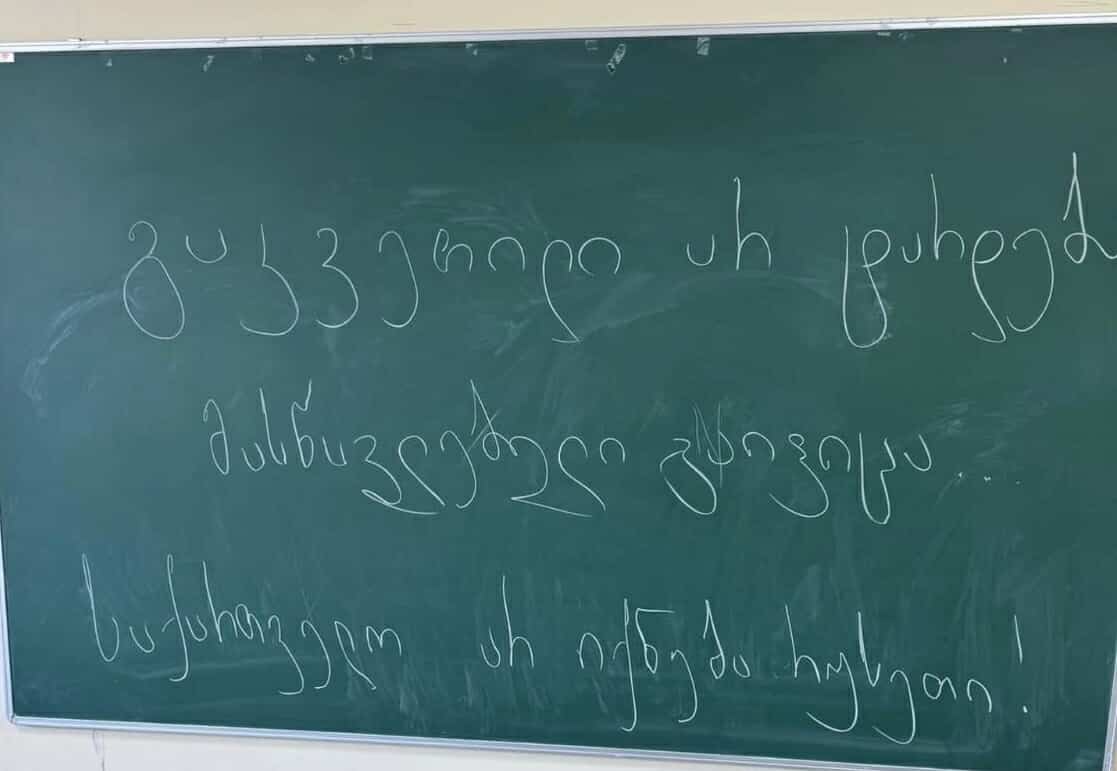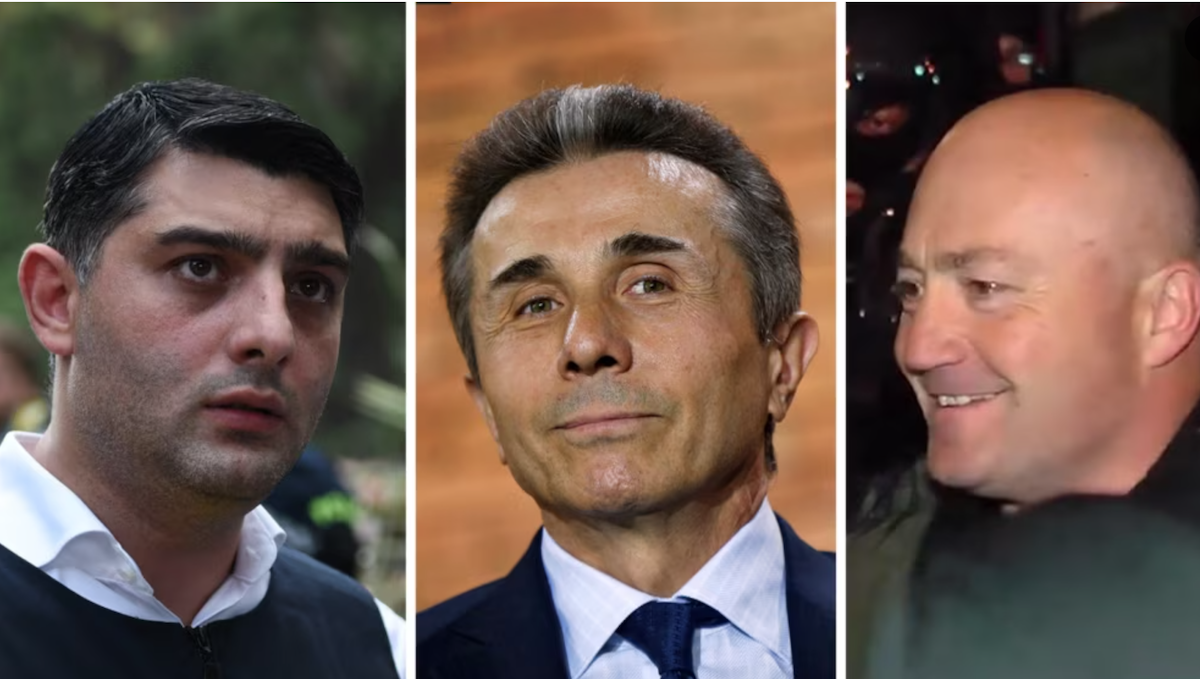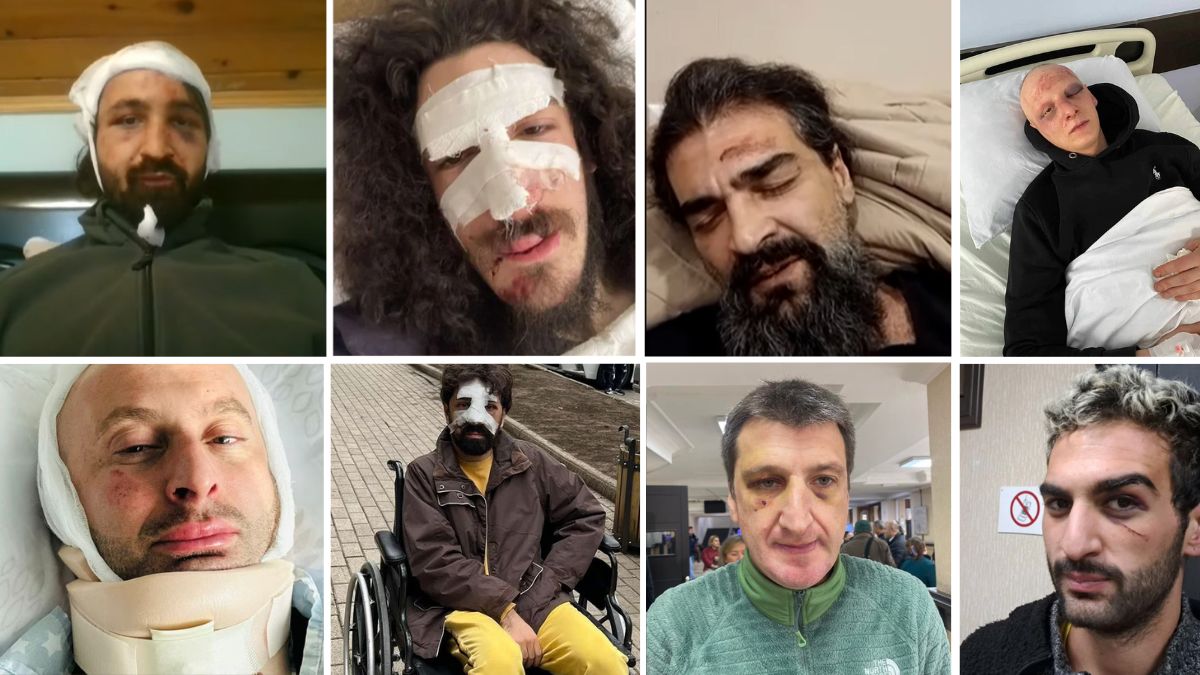
Special forces attacked protesters in Tbilisi
The Georgian Ministry of Internal Affairs reported that since November 28, when the latest wave of protests began nationwide, over 300 demonstrators have been arrested, with 13 facing criminal charges. Prime Minister Irakli Kobakhidze has repeatedly praised law enforcement for handling the dispersals “according to the highest standards, exceeding even European norms.”
However, human rights organizations and journalists present a starkly different account.
Many detainees have been subjected to severe beatings, resulting in facial fractures, broken noses, orbital bone injuries, and numerous bruises. A significant number required hospitalization.
When the Ombudsman of Georgia and members of his office visited the detainees and observed their condition, Levan Ioseliani issued an urgent statement, equating the treatment of protesters to torture.
“Severe injuries, mostly to the face, eyes, and head, strongly indicate that the police repeatedly used force disproportionate to the situation. The location, nature, and severity of the injuries suggest that the police resorted to violence as a means of punishment. Such excessive violence aimed at punishment constitutes an act of torture,” he said.
A new wave of mass protests erupted in Tbilisi and other cities across Georgia on November 28, following Prime Minister Irakli Kobakhidze’s announcement that the government would suspend negotiations on Georgia’s EU membership until 2028.
The announcement came just days after the Central Election Commission officially declared the ruling party victorious in the October 26 parliamentary elections. The results sparked widespread protests, as much of the public sided with the opposition and the president, claiming the elections were rigged, rendering the new parliament and government illegitimate.
The ongoing protests center on two key demands: to restore the country’s path toward European integration and to hold new parliamentary elections.
Since November 28, special forces have violently dispersed tens of thousands of protesters for several consecutive nights using water cannons, tear gas, and pepper spray. Dozens of people have been arrested each night, and both they and their lawyers report extremely brutal treatment. Protesters are humiliated and beaten, mostly in the face.
Physical violence has also targeted protesters who were not arrested, such as journalists and women. Some of them required medical attention.
The stories of the detained are strikingly similar. They were captured, dragged into special forces’ minibuses, and beaten savagely. Their personal belongings were taken, they were tortured, and they were interrogated about whether they would return to future demonstrations.
Dozens of videos showing people being beaten at protests have circulated in the media and on social networks. These materials make it easy to identify the perpetrators of these crimes.
However, as of December 6, not a single member of the special forces responsible for violently attacking protesters has been arrested.
JAMnews has begun collecting the stories of those arrested and beaten. In this series, we will share the hardships they have endured. The list will be updated regularly.
Injured journalists
Among the many other aspects of these protests is the fact that the police are interfering with the work of journalists and harassing them. Law enforcement becomes especially aggressive when media representatives capture footage of beatings and the arrests of protesters.
The number of injured journalists has exceeded 60 within the first week of the protests.
Some of them have required serious medical attention.
You can find the full list of injured journalists at this link.
The story of the brutal beating of journalist Guram Rogava

Guram Rogava, a journalist for Formula TV, was attacked by special forces while reporting live from a protest outside Parliament. On the night of November 28, Rogava joined a special broadcast from Rustaveli Avenue, reporting that the special forces were selectively targeting protesters, abducting them, detaining them, and beating them.
“When I started the live broadcast, I noticed that I was the focus of a special forces officer’s attention; he was staring directly at me,” the journalist said.
Shortly after the live broadcast began, viewers saw the camera suddenly shift, and Guram Rogava was shown lying on the ground. A video recorded by journalists from the Georgian branch of Radio Free Europe shows special forces beating Rogava from behind, delivering punches to his head. Rogava fell onto the curb and lost consciousness.
Medical diagnosis: a broken cervical spine and a facial bone fracture near his eye.
The risk of Guram losing sensation in all four limbs has passed. Doctors stated that he narrowly avoided death and permanent disability. However, Guram now requires extended rehabilitation.
The story of photographer Alexandre Keshelashvili

On the night of November 28, journalist Alexandre Keshelashvili from the online outlet Publika was also injured. Riot police attacked him and began beating him brutally.
“I was shouting that I was a journalist, but I think that had the opposite effect. They cursed at me and then said they would punish me even more precisely because I was a journalist,” he wrote on social media after his release.
“They dragged me into some corridor, where they beat my arms and legs, but mostly my face. They took my cameras, badge, and protective mask. Several people beat me the entire time as they dragged me from Chichinadze Street through the parliament’s rear courtyard to 9 April Street. They put handcuffs on me there,” he added.
After they realized he was a journalist, they transported him to a clinic.
Among other injuries, Lexo has a broken nose and had to undergo surgery.
The story of reporter Mariam Gaprindashvili’s injury

On the night of November 30, Mariam Gaprindashvili, a reporter for the Pirveli TV channel, sustained a head injury.
She was reporting live from Rustaveli Avenue with her cameraman as special forces were already using a significant number of water cannons and tear gas, while arrests had also begun.
During the live broadcast, footage showed Mariam suddenly falling to the ground. At that moment, the violent crackdown on the protest was ongoing, and she had been struck on the head by a blunt object. However, she still does not know who delivered the blow.
“Everything went dark, and then I came to under the cries of my colleagues who were there with me, searching for emergency medical assistance,” Mariam recalled in an interview with Mtavari Arxi.
Mariam was discharged from the hospital with six stitches on her head and a concussion.
Beatings of protesters
The story of Zviadi Maisashvili: beaten by special forces with kicks to the face – this video becomes a symbol of state violence
On November 30, social media was flooded with a video showing special forces brutally beating a young man lying motionless on the ground with kicks to his face. The footage is harrowing and difficult to watch.
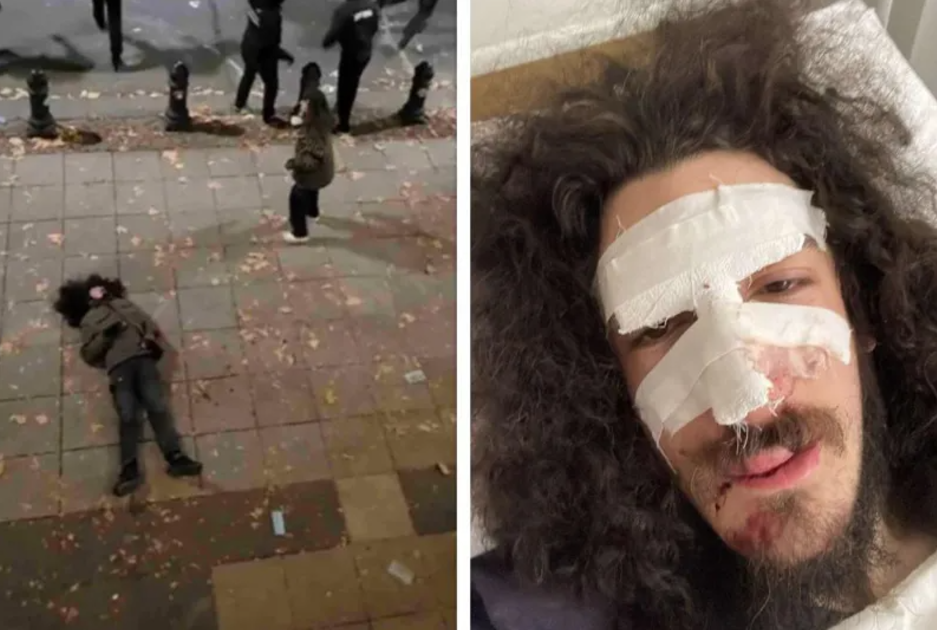
In the footage, a thin young man with long, curly hair is seen surrounded by Special Forces dressed in black. Suddenly, one of the Special Forces soldiers approaches him and kicks him in the back. Then another appears and kicks him in the face with his heel, and finally, a third kicks the young man again in the face as he seems to be trying to stand. Zviadi collapses, unconscious.
“Animals!” screams a woman trying to protect the fallen young man. He is fighting back with his fists against the Special Forces and shouting for someone to call an ambulance.
This is the story of 23-year-old Zviadi Maisashvili. That evening, he was at the protests on Rustaveli Avenue with his 24-year-old brother, Giorgi. Zviadi was beaten on Rustaveli Avenue.
“We heard that they said Special Forces were advancing from the upper street, planning to surround us, so we headed toward the ‘Rustaveli’ metro station,” Zviadi told Mtavari Arkhi. “There was a large group of Special Forces on a side street. Everything happened there in a matter of seconds. They chased after people running toward the metro and beat everyone they caught. My brother and I ended up in the middle of the crowd and couldn’t get out.
I was caught, beaten, and thrown to the ground. This part isn’t on the video. I don’t remember what was filmed because by that time, I was already unconscious.“
He said that he came to in the ambulance.
“It’s a miracle that after such a beating, I only have a broken nasal septum, a concussion, a knocked-out tooth, and bruises on my lips,” Zviadi said.
That night, the Special Forces also beat and detained his brother. Giorgi (who has a huge bruise around his eye) was sentenced to six days of detention.
Zviadi said that he was saved from arrest by the people who protected him from further beating and managed to get him into the ambulance.
The story of the beating of Gia Jvarshishvili, who fights for the rights of people with disabilities
“They beat me in every possible way; I have broken ribs,” said activist Gia Jvarshishvili, who defends the rights of people with disabilities, during a broadcast on the Formula TV channel.

He was arrested during the protests on Rustaveli Avenue in the early hours of December 1–2 in front of journalists.
As he recalled in an interview with Radio Liberty, that night, around four a.m., tear gas was used against the protesters. People were attempting to escape through nearby side streets.
Gia was with a friend at the time. “Suddenly, several special forces officers rushed at us, shouting: ‘It was you who threw Molotov cocktails at us.’ I raised my hands to show that I had nothing,” he said.
“There were several of them, and they said to each other: ‘Don’t hit him yet; the journalists are filming.’ They dragged me into a special forces van and shouted: ‘Here he is, the one who threw Molotov cocktails at us.’ And then they attacked me.“
“When they eventually broke my ribs, I experienced unbearable pain in every position—I couldn’t sit, lie down, or move. Then I was handed over to the ambulance,” Jvarshishvili told Formula TV.
There, the police photographed him up close, called him a homeless person, and left him in the care of medical personnel.
“Many people now say that those they severely beat are not arrested. So it seems that I was lucky to have broken ribs,” Jvarshishvili said.
The activist was even robbed. He claimed that his personal belongings, including his phone and wallet with money, were stolen from his pocket.
“There was a moment when I thought I was going to die” – the story of David Janiashvili’s beating
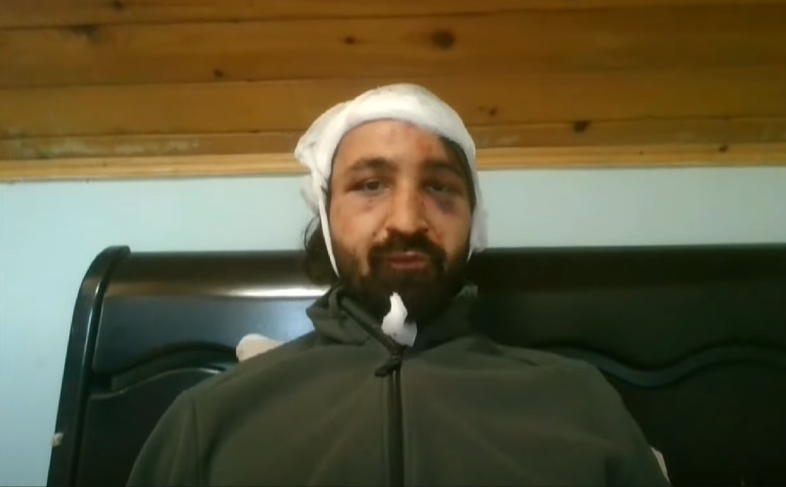
David Janiashvili was beaten on Rustaveli Avenue while helping people escape from the gas-filled area.
“There was a moment when I came to help another person, and it turned out I hadn’t clearly seen his silhouette. It was a special forces officer. He hit me, and they dragged me.
At first, they took me through some kind of corridor, and they kept hitting me the entire time we were moving through it. Then they put me into a minibus. I thought they were going to take me somewhere, but there were several people dressed in uniform, and they started beating and searching me. I fell, but that didn’t stop them. They kept hitting me in the face.
There were moments when I thought that my skull couldn’t withstand so many blows, that it would simply shatter and I would die,” David said in an interview with the “Pirveli” TV channel.
In the minibus, where David was being beaten, there was another person being attacked as well.
“They were cursing us, mocking us, asking why we were there, why we had come. They came in groups of 5 to 10 people and beat us, threatening to rape us with police batons. Just when we thought it was over, a second group arrived.
Among them, there was one person who wasn’t beating anyone but was controlling the situation, advising how and where to strike.“
David was eventually taken to the hospital.
He had stitches on his head, injured jaws that made it difficult for him to chew, a relatively minor nasal fracture, and multiple bruises on his body.
In his hospital room, six other people with similar injuries were lying nearby.
The story of 24-year-old David Abuladze’s beating
Among the many beaten was 24-year-old David Abuladze, a person with limited capacity. He was beaten by special forces on the night of December 3 – on the International Day of Persons with Disabilities.

A lawyer from the Human Rights Partnership, an organization defending David’s rights, explains that at the time of the special forces’ attack, David was no longer near the protest area.
“He was walking home, eating something on the way, and didn’t notice the approaching danger. At that moment, a group of special forces, who had been hiding in one of the buildings on Rustaveli Street, came out onto the avenue to disperse the protesters.
The beating began, and David found himself right in front of them.“
The organization considers the attack on him to be particularly cruel. David has hearing problems, and he had no chance to prepare for the attack or escape to a safe place.
David is currently in the hospital. He has a concussion, injuries to his legs, and his face is almost blue from blood vessels ruptured during the attack.
The story of the arrest and beating of poet Zviad Ratiani
“The so-called ‘court’ has made a decision, and my father has been detained for eight days. Although he was beaten by the police, he has multiple fractures of the jaw and nose, and he requires surgery and bed rest,” wrote Nina Ratiani, the daughter of poet Zviad Ratiani, on social media on December 2.

Zviad Ratiani was detained on the first night of protests, from November 28 to 29, on Chichinadze Street. This video is difficult to watch. It shows dozens of special forces in black clothing and black masks grabbing a person in a colorful jacket, dragging him, and beating him along the way.
Family members recognized Zviad Ratiani in the footage.
He has a broken fifth vertebra, a nasal bone and septal fracture, and bruises and hematomas of varying severity on his head and body.
He told the Georgian edition of Radio Free Europe that he was beaten for a long time during his arrest. Despite being handcuffed, the only thing he could do to protect himself was turn his head away.
“They put me in the car, and they kept beating me there as well. They said, ‘We’ll break you, and we’ll see how you squirm now.’ They couldn’t break me,” said Zviad Ratiani.
Participants in the protest who are arrested and beaten are mostly accused of the same thing—disobeying police orders, verbal abuse, and/or engaging in other insulting actions against law enforcement officers. This falls under Part 1 of Article 173 of the Administrative Offenses Code, which carries a fine of 2,000 to 3,000 lari (around $700–1,000) and/or administrative imprisonment for up to 15 days.
The story of the beating, arrest, and fine of Irakli Tsulaia
Irakli Tsulaia, the founder of the “Holon” platform and a member of the “Gakharia – For Georgia” party, attended the court hearing with a bruise on his eye and visible signs of injuries on his face. Tsulaia was beaten and fined 3,000 lari (approximately $1,000) for disobeying a police officer.
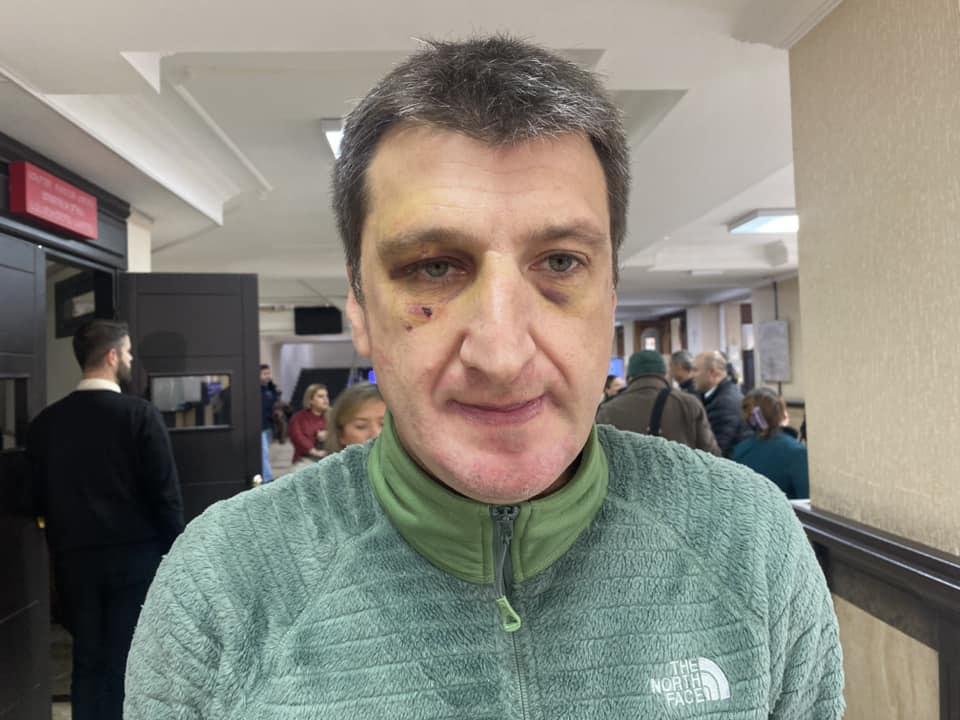
Irakli Tsulaia was detained on Rustaveli Avenue in the early hours of November 28. He says that before his arrest, he had been at the protest with his children. When the dispersal began, he took his children home and then returned.
“We were together with my brother. I was arrested between the Blue Gallery and the First School. There was special forces there, and I approached them and said: ‘This is my school. The Russians once burned it down with the hands of Georgians. Now they want to attack the Georgian people again with your hands. Please don’t do this.’ After that, I was arrested,” Tsulaia told Netgazeti.
He says that seven special forces officers grabbed him and dragged him while beating him along the way.
“My brother rushed to save me, shouting that I had heart problems. They started beating him as well. We were placed on a bus, and they continued beating us there. They brought us to a detention center with semi-naked, bloodied people. I was in hell,” he said.
Tsulaia has filed a complaint with the Special Investigation Service, demanding that an investigation into the police officers’ actions be opened. He has also met with the Public Defender, but he has little hope that the case will be properly investigated “because all the institutions are under the control of the government.”
“There is no institution or structure left in our country where justice can be found,” said Irakli Tsulaia.
The story of the beating and arrest of Nika Danelia and his friend Giorgi Bagrationi-Davitashvili
Twenty-seven-year-old Nika Danelia was arrested on November 29 at dawn near the Blue Gallery on Rustaveli Avenue. He was surrounded and beaten by a group of special forces.
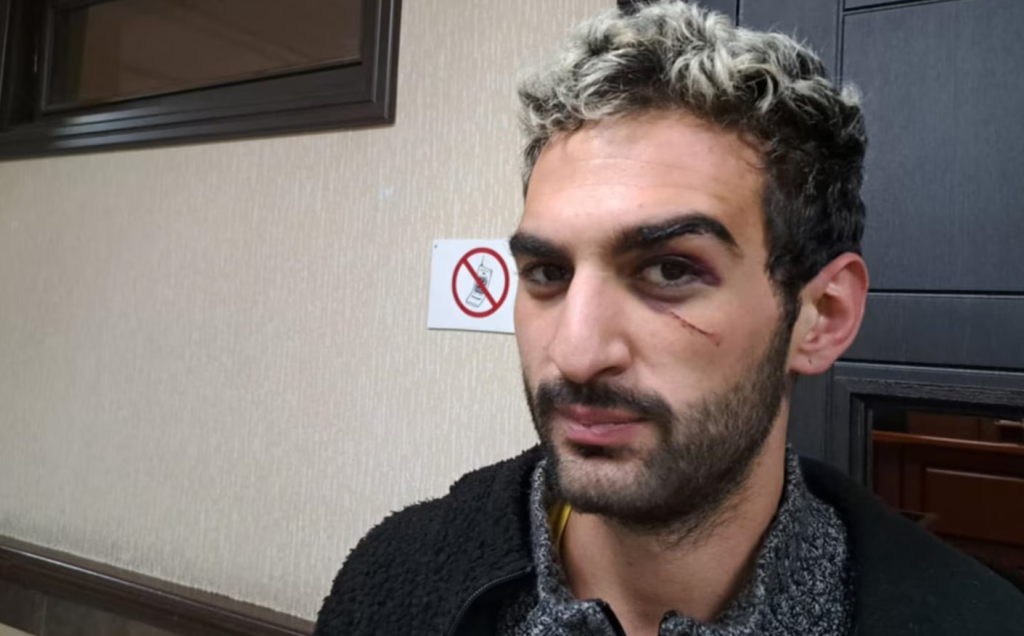
Nika Danelia told the Georgian bureau of Radio Free Europe/Radio Liberty that they were standing calmly on Rustaveli Avenue when his friend was waving a Georgian flag.
“I was beaten by about 15 people. They kicked me, even when I was lying on the ground. Then they took me to the detention center. There, they didn’t beat me anymore, but they didn’t even ask what happened or why I had injuries and a broken eyebrow,” he recounted.
Nika’s friend, 27-year-old Giorgi Bagrationi-Davitashvili, was also arrested. He was beaten as well.
“In the video, you can see Giorgi simply standing in front of the First School at the bus stop with a flag in his hand. Two special forces officers suddenly approached him and detained him. Then they took him toward the gallery, and a whole group of special forces officers began beating him and his friend. He sustained injuries to his head, forehead, temples, and his entire body,” said lawyer David Dadiani to Radio Free Europe/Radio Liberty.
The court trial for Nika and Giorgi took place only after 24 hours, during which they were not given the opportunity to sleep. The court ruled to impose a fine on both of them.
“They held me in detention for 48 hours with a broken nose” – the story of Giorgi Kinkladze’s beating
Giorgi Kinkladze is one of more than 300 people arrested and brutally beaten for participating in the protests. His story was shared with the online publication Publika by his friend, Lizi Darbaidze.

Giorgi and Lizi were together at the protest that day.
“At about 7:30, we arrived at Rustaveli and were already on our way home when the dispersal began. Special forces attacked us near Republic Square. We tried to run away, but Giorgi slipped and fell. Our friends were with us, and they tried to pull him out, but they couldn’t.
In various videos, you can see the special forces kicking him in the face with their boots. He falls several times, and they continue to kick him,” Lizi recounts.
Giorgi was taken to the detention center in the suburban district of Zagesi. He sustained multiple injuries. His lawyer demanded that he be transferred to the hospital, but the request was denied.
Giorgi was only able to reach a clinic two days later, 48 hours after his detention and release. It was discovered that his nose was broken, and he required surgery.
The story of the arrest and beating of translator Data Kharaitshvili
Translator Data Kharaitshvili was arrested on the night of December 3. His story was shared with the Georgian branch of Radio Free Europe/Radio Liberty. The conversation took place in the hospital, where four other people beaten during the protests were in the same ward with him.
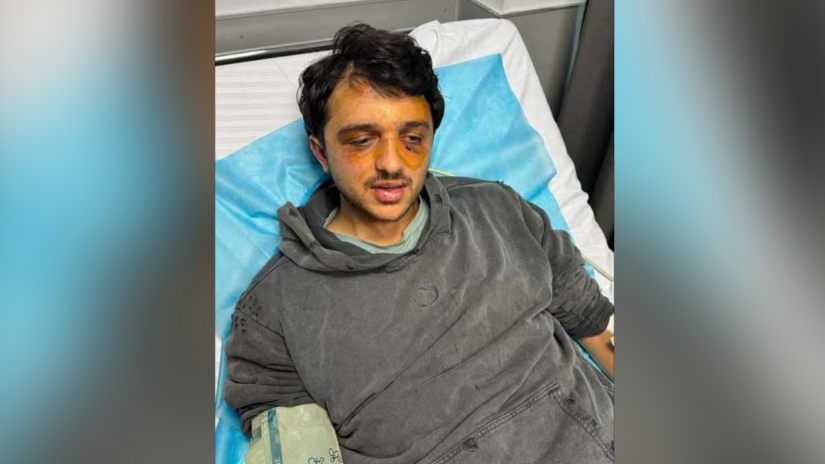
Data Kharaitshvili says that at the time of his arrest, he was alone. He had come down to Rustaveli Avenue from a street above the Parliament.
“There were about a hundred demonstrators on Besiki Street, and the special forces were lined up there. Before I even reached the middle of the street, people came running from above, pursued by the special forces. I ran with them and dropped my phone. I turned back to pick it up and received a kick to the face.”
The special forces attacked him. “They grabbed me, insulted me, dragged me, tore the phone from my hands, ripped off my watch, and tore an earring at the moment they grabbed me.”
Afterward, Data, like many other detainees, was brutally beaten in the special forces’ minibus, mostly in the face. When he was dragged inside, another detainee was already being beaten there.
The violence continued as others have described — periodically, the door would open, and a new group of angry special forces would enter and continue the beatings, focusing mostly on the face.
Data Kharaitshvili recounts that the leader of the “Khareba” special forces was standing at the minibus door, swearing and recording the beating with a video camera.
“He laughed and said, ‘Now, try to curse at Khareba,’ and, ‘Smile for the camera.’ Patrol police units were standing near these vehicles, observing everything. Perhaps they didn’t see the special forces beating people, but it was impossible not to hear the screams of those being beaten.
One of the special forces asked me if I had served in the army. When I said no, they beat me again. They said we were agents, that someone controlled us, that we were enemies — repeating the rhetoric of the authorities,” Data told the Georgian branch of Radio Free Europe/Radio Liberty.
Data has a concussion, a broken nose, and an eye injury. His head and body are covered in bruises and hematomas.
The story of the beating of Erekle Loladze, founder of the “Loladze Family Winery”
On November 30, Erekle Loladze, the founder of the “Loladze Family Winery,” was beaten at a protest along with his brother.

He told BMG that they were attacked by around 50 masked special forces officers:
“We were near the First School when they suddenly came out from the school courtyard and attacked us. They knocked us to the ground. I stood up, and they knocked me down again with blows, hitting me while I was lying on the ground. One of them stood on me with both feet and jumped. Then they dragged me off the ground and sprayed pepper spray in my face.
After that, they dragged me into a special forces minibus and continued to beat me there.”
His brother Giorgi was also beaten. After being taken to a detention center, the violence stopped. Erekle was taken to the hospital, while his brother was transferred to a detention center in the village of Zagesi.
Erekle Loladze suffered broken jawbones on both sides and underwent surgery.
“They hit me on the head” – ballerina Natiia Bunturi’s account
Ballerina Natiia Bunturi was beaten at a protest in Tbilisi on November 29.
She shared her experience on social media:

“I was running with the crowd, stumbled, and fell. Three special forces officers picked me up. They said: ‘Get up, we’ll help you get out of here.‘
They picked me up, and I asked them several times: ‘Don’t hit me.’
They took me to an alley that they already controlled. They asked me where my car was, where my friends were, and told me to go home. I answered them and didn’t think they meant any harm.
Then, suddenly, one of them hit me on the head twice. I started bleeding from my nose, my tongue came out, and I couldn’t say anything.
Another special forces officer did pull me out of there, and I managed to catch up with my friends. I’m glad I was alone there, that none of the guys were with me, or else they would probably already be in prison by now.”
“They covered my head and kept beating me” — the story of the brutal beating of Lazare Maglakelidze

Lazare Maglakelidze was beaten and detained at a protest at dawn on December 2.
He told the TV channel Pirveli that when he was grabbed by the special forces, they first checked for nearby journalists’ cameras before starting to beat him.
“At first, two held me on each side. But then they covered my head and kept beating me, and I couldn’t see exactly how many there were,” Lazare said.
He lost consciousness and woke up in a special forces minibus, where he was continued to be beaten along with the other detainees.
“Besides me, there were three others there. They beat us and then left. About 30 minutes later, five special forces officers came back, turned off the light in the vehicle, and started beating us again in the dark. They threatened to rape us with a police baton,” he said.
He has a broken nose and a concussion.

